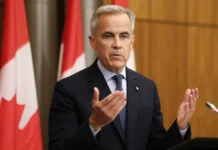Brussels, 24 June 2022 (TDI): The European Union (EU) Council has granted Ukraine candidate status, along with Moldova, on Thursday.
The President of the European Council, Charles Michel, announced the decision whilst underlining that it was a “historic moment”
Agreement. #EUCO has just decided EU candidate status to Ukraine and Moldova.
A historic moment.
Today marks a crucial step on your path towards the EU.
Congratulations @ZelenskyyUa and @sandumaiamd and the people of Ukraine 🇺🇦 and 🇲🇩
Our future is together.
— Charles Michel (@CharlesMichel) June 23, 2022
Decision on granting Ukraine candidate status
The President maintained that the accession process is “merit-based” as well as “by the book”.
He further added that formal negotiations will start after the fulfillment of conditional reforms. The reforms therefore include bolstering the rule of law and fighting corruption. All in all, there is an expectation for the Commission to take stock at the end of 2022.
Most importantly, the Ukrainian President expressed gratitude to President Michel and European Commission President, Ursula von der Leyen, along with other EU leaders, for their support.
Zelenskyy further highlighted that Ukraine’s future is within the EU. As anticipated, the President of Ukraine commended the EU leaders’ decision at EUCO in granting Ukraine candidate status.
Zelenskyy welcomed the decision as a unique and historical moment in Ukraine-EU relations.
Support for Ukraine
Prior to this, the MEPs demanded that both Ukraine and Moldova be immediately granted EU candidate status.
As part of the EU’s interest in enlarging the EU, leaders of the council have been required to provide a clear political signal to Ukraine, Moldova, and Georgia. Hence, confirming their European perspective.
With 529 votes to 45 and 14 abstentions, the Parliament adopted a resolution on Thursday calling on the Heads of State or governments to grant European Union candidate status to Ukraine and the Republic of Moldova “without delay”.
In assurance, the European Parliament insisted that there is no ‘fast-track’ for European Union membership. Thus, accession is still a merit-based and structured process.
In a similar manner, the process requires the fulfillment of EU membership criteria. Also, it is dependent on the effective implementation of reforms.
Notably, on the road to gaining European Union candidate status, Ukraine received support from different leaders, countries, government officials, and most importantly, the European Union. As a result, Ukraine’s application gained a boost.
For instance, the President of the EU Commission visited Ukraine and maintained support for Ukraine whilst supporting its process of advancing on the European path.
The Latvian Minister of Foreign Affairs met the German Minister for Europe as they discussed Latvia’s position regarding the need to grant Ukraine European Union candidate country status.
In a similar manner, the President of Latvia and the other seven Eastern European Presidents signed a letter supporting Ukraine’s immediate candidacy.
In addition, the EU Commission Vice President for Interinstitutional Relations met the Ukrainian Deputy Prime Minister for European and Euro-Atlantic integration of Ukraine, and likewise, they discussed supporting Ukraine’s path toward the European Union.








